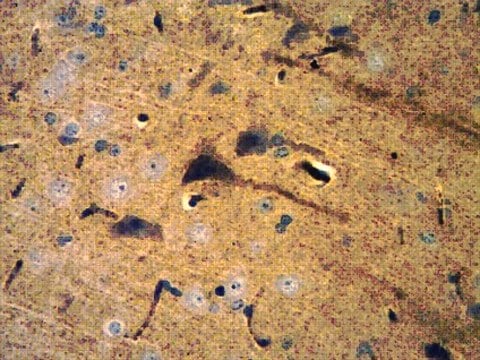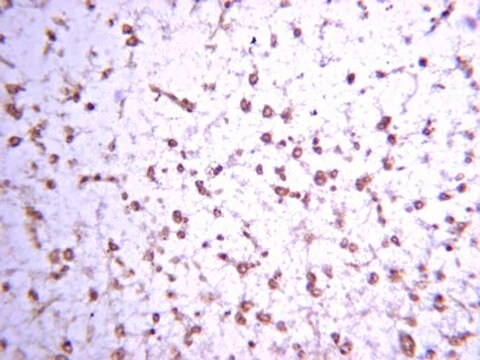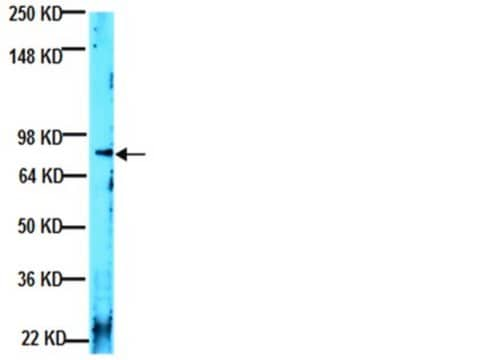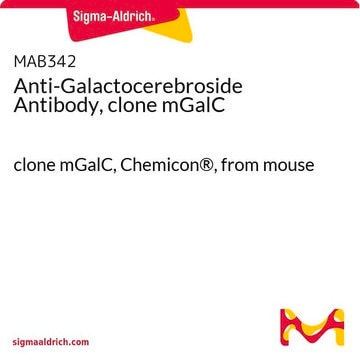MABS1922
Anti-Src-Like-Adaptor 2 (SLA2) Antibody, clone Z30P1F12*F4
clone Z30P1F12*F4, from mouse
Synonyme(s) :
Modulator of antigen receptor signaling, MARS, Src-like adapter protein 2, SLAP-2
About This Item
Produits recommandés
Source biologique
mouse
Niveau de qualité
Forme d'anticorps
purified antibody
Type de produit anticorps
primary antibodies
Clone
Z30P1F12*F4, monoclonal
Espèces réactives
human
Technique(s)
immunohistochemistry: suitable (paraffin)
Isotype
IgG1κ
Numéro d'accès NCBI
Numéro d'accès UniProt
Conditions d'expédition
ambient
Modification post-traductionnelle de la cible
unmodified
Informations sur le gène
human ... SLA2(84174)
Description générale
Spécificité
Immunogène
Application
Signaling
Qualité
Immunohistochemistry Analysis: A 1:250 dilution of this antibody detected Src-Like-Adaptor 2 (SLA2) in human cervical cancer, pancreas, and tonsil tissue.
Description de la cible
Forme physique
Stockage et stabilité
Autres remarques
Clause de non-responsabilité
Vous ne trouvez pas le bon produit ?
Essayez notre Outil de sélection de produits.
Code de la classe de stockage
12 - Non Combustible Liquids
Classe de danger pour l'eau (WGK)
WGK 1
Certificats d'analyse (COA)
Recherchez un Certificats d'analyse (COA) en saisissant le numéro de lot du produit. Les numéros de lot figurent sur l'étiquette du produit après les mots "Lot" ou "Batch".
Déjà en possession de ce produit ?
Retrouvez la documentation relative aux produits que vous avez récemment achetés dans la Bibliothèque de documents.
Notre équipe de scientifiques dispose d'une expérience dans tous les secteurs de la recherche, notamment en sciences de la vie, science des matériaux, synthèse chimique, chromatographie, analyse et dans de nombreux autres domaines..
Contacter notre Service technique








